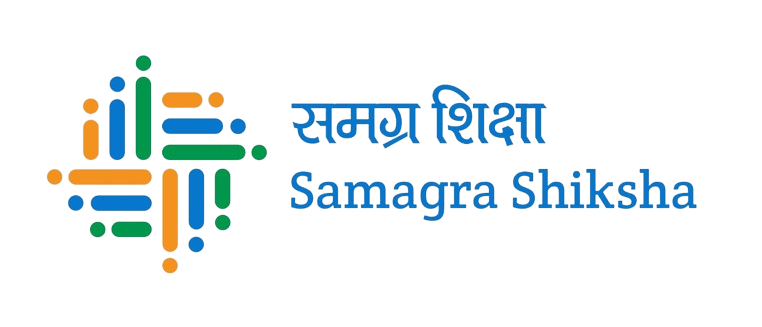
Samagra Shiksha is an integrated scheme launched by the Government of India to provide equitable, inclusive, and quality education from pre-primary to senior secondary levels. In Uttar Pradesh, the scheme has been tailored to address the specific educational needs and challenges faced by the state, particularly in secondary education.
Key Focus Areas in Uttar Pradesh
Expanding Access and Infrastructure: The Uttar Pradesh government, under the Samagra Shiksha scheme, is committed to ensuring that every student has access to secondary education. This includes the construction and upgradation of school facilities, such as additional classrooms, science and computer labs, libraries, and essential amenities like drinking water, separate toilets, and ramps for differently-abled students.
Promoting Quality Education: To improve the quality of education, the scheme focuses on the professional development of teachers through training programs and workshops. Uttar Pradesh has implemented NISHTHA, an integrated teacher training program that equips teachers, school heads, and educators with the skills needed to enhance learning outcomes. The state also emphasizes the use of technology in education, promoting digital classrooms and the DIKSHA platform for digital learning resources.
Inclusive and Equitable Education: Samagra Shiksha in Uttar Pradesh aims to bridge the educational gap for marginalized communities, including Scheduled Castes, Scheduled Tribes, minorities, and children with special needs. The scheme includes provisions for scholarships, free uniforms, textbooks, and specialized support for girls' education, including initiatives like the Rani Laxmibai Atma Raksha Prashikshan for self-defense training.
Vocational Education and Skill Development: Recognizing the importance of vocational training, the scheme supports the introduction of vocational courses at the secondary and senior secondary levels. This includes the provision of workshops, laboratory equipment, and on-the-job training opportunities, helping students develop practical skills for future employment.
Community Engagement and Monitoring: The scheme encourages active participation from the community, including parents and local organizations, in the educational process. It also emphasizes transparency and accountability through regular monitoring, social audits, and data collection using systems like UDISE+ and PRABANDH.
Support for Out-of-School Children: Uttar Pradesh has implemented special programs to identify and mainstream out-of-school children. The state provides additional support, such as residential schools and transport facilities, to ensure these children can access quality education.
Samagra Shiksha in Uttar Pradesh represents a comprehensive effort to transform the educational landscape, providing students with the necessary resources and support to achieve academic success and personal growth. The scheme is aligned with the National Education Policy 2020 and aims to create a robust, inclusive, and dynamic educational system in the state.
Sl. No. | Major Objectives | Samagra Shiksha Provisions |
1 | Access and Retention | Upgradation of Schools at all levels based on gaps in access. Strengthening of existing schools as identified through UDISE+. Science, Physics, Chemistry, Biology Labs, Arts/Craft Rooms. Additional Classrooms (ACR). Computer room, Library room, essential classroom furniture. Drinking Water Facility. Separate toilets for boys, girls, and CWSN. Ramps with handrails. Residential quarters for teachers. Solar Panel, Electrification, etc. Provision of free uniforms and textbooks. Residential Schools/Hostels . Transport/Escort Facilities. Special Training and mainstreaming of Out of School Children (OoSC). Health check-ups. |
2 | Capacity Building | - NISHTHA (Integrated Teacher Training including Teachers, School Heads, Teacher Educators & Coordinators at BRC/CRC) and need-based trainings. Capacity building of educational administrators. Training of SMC/SMDC/PTA. |
3 | Defining Standards | - Learning Outcomes. NAS (National Achievement Survey). FLN Survey (Foundational Literacy and Numeracy). PGI (Performance Grading Index) for States/UTs and Districts. Item banks for criterion-referenced assessment. |
4 | Quality | - Equal access to quality digital content. ICT Labs, smart classrooms, and other digital initiatives. Vidya Samiksha Kendra (VSK). Science labs, Tinkering Labs, etc. Topic circles. Fit India Campaign. Ek Bharat Shreshtha Bharat (EBSB). Youth Club and Eco Clubs in schools. Composite School Grant. State-specific innovations related to: ✓ Bagless days. ✓ Internships. ✓ Exposure to vocational education. ✓ Learning enhancement. ✓ Art integrated, sports integrated, toy-based pedagogies, etc. |
5 | Strengthening of Teacher Education Institutions (TEIs) | Establishment and support to SCERTs, DIETS, BITEs, etc. Establishment of Special Cells including Assessment Cell. In-service Training for Teachers, Head Teachers, and Teacher Educators. Academic support through BRC/URC/CRC. |
6 | Bridging Social and Gender Gaps | - Kasturba Gandhi Balika Vidyalayas (KGBVs). Rani Laxmibai Atma Raksha Prashikshan (Self-defense training). Installation of sanitary pad vending machines and incinerators, etc. Life skill and Adolescent Education Programmes for emotional, mental, and physical well-being of children. School health program and wellness ambassador. |
7 | Inclusion | - Braille and Large print books for children with visual impairment. Stipend for CWSN Girls, aids & appliances, assistive devices, resource rooms, etc. < Identification camps for CWSN at block level. Support for Special Educators and resource persons. Focus on Aspirational Districts, SFDs, EBBs, Border areas & LWE districts. |
8 | Vocational Education | - Vocational Education at Secondary and Senior Secondary level. Provision of Workshop/laboratory cum Classroom and on-job trainings. Tools & Equipment. |
9 | Community Mobilisation | - Community participation and monitoring for universal access, equity, and quality. Workshops/Lectures/Programmes for creating Awareness on RTE Act, Learning Outcomes, etc. |
10 | Data Capturing | - UDISE+. PRABANDH. |
11 | Monitoring | - Regular meetings with Education Secretaries/SPDs. Visits to State and UTs. National Workshop/Review Meeting on Physical and Financial Progress. Monitoring through PRABANDH System. Review of UTs by Hon’ble Home Minister with Lt. Governors and Administrators. Social Audit. UDISE+: Data bank of Education Indicators, Linkages with School GIS portal. Monitoring through Public Financial Management System (PFMS). |














